My philosophy on life is that at birth, we set sail on a sinking ship. That guiding thought ruled out any hope of pursuing a career as a motivational speaker. Had I been born in Portugal during the 15th century, working on a caravel (Portuguese sailing ship) would not have been my calling, either. Thousands of ships sank while exploring the New World. Caravels weren’t exactly Carnival Cruises (although I wouldn’t trust one of those in 2020, either).
Tiny Portugal once dominated the oceans, spreading its influence across the globe. The sea was the lifeblood of the Portuguese and it still is to this day, even though the Age of Discovery has long passed.
Saltwater runs through Portugal’s veins. That is why one of our prerequisites for moving here was to live within walking distance of the ocean. While I have no desire to sail the seven seas, I am just fine to walk along the beach, wading in the water up to my ankles.
Portugal’s Early Explorers
Whenever a group of expats flock (or herd or gaggle), the conversation often gets around to how we discovered and chose the specific area in Portugal that we did. But before talking about the explorations of our brave gang of expats, I want to touch on the subject of the much braver original explorers.
The 15th century began the Age of Discovery in Europe. During that time in history, every country was trying to outdo the other to expand their wealth and influence. Portugal and Spain were kind of like the US and the Soviet Union back then, or maybe the Red Sox and the Yankees. Although fierce rivals, they decided it was wiser to draft a treaty to divide up the New World rather than fight over every square inch. They did go to war against each other later, but that’s another chapter.
By the way, the rivalry between Spain and Portugal remains until this day, mostly fought on the soccer field. However, Portugal can claim they started the Age of Discovery under Prince Henry the Navigator, which makes them the clear winner. Sorry, Spain!
Prince Henry the Navigator was one of Portugal’s early movers and shakers. Actually, he wasn’t a sailor or a navigator. He was a wealthy royal prince who recruited and sponsored the best navigators, scholars and cartographers to discover new lands for Portugal. You could say he was the team manager.
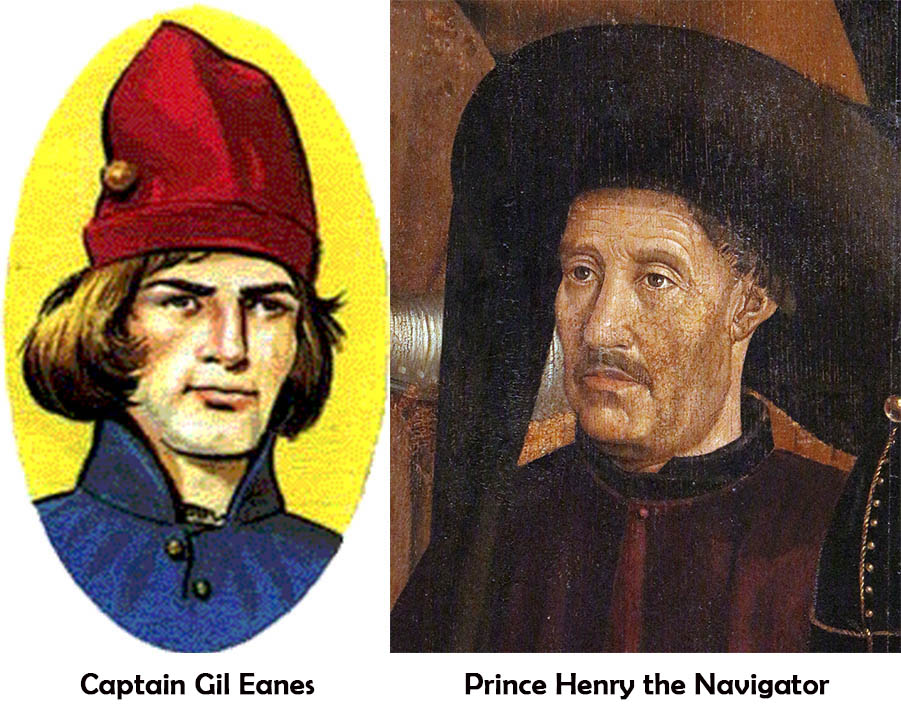
In one of the earliest explorations, Prince Henry sent out his most trusted captain, Gil Eanes, to sail around Cape Boujdour on the west coast of Africa. He turned back fifteen times before finally crossing it in 1433. Fifteen times!
So, you might be wondering what the conversations between Captain Eanes and Prince Henry sounded like after turning back so many times. As fate would have it, while digging the foundation for our apartment by the sea in Ericeira, a treasure chest was uncovered. Inside it was a diary of these conversations. Here is one of them that was translated for me:
Prince Henry: So, did you bring back any gold?
Captain Eanes: Well, not exactly, sir. We encountered some sea monsters and had to turn back.
Prince Henry: That’s a new one. Last time it was a giant whirlpool.
Captain Eanes: Aye, sir, we barely spun out of that one.
Prince Henry: And the time before that it was boiling waters.
Captain Eanes: Aye, sir, close enough to boil an eel. The crew was ready to mutiny.
Prince Henry: Maybe your crew would trust you more if you took off that silly hat!
Captain Eanes: But it was a gift from a mermaid I met off the Canary Islands.
Prince Henry: Put down the grog, Captain, and go back out there and bring back some gold! And don’t forget the cinnamon and pepper or I’ll have you tied to the pillory and whipped!
Okay, the diary was not found on our property. But sea monsters, giant whirlpools and boiling waters were a few of the theories of what was awaiting those who set sail. I’m not sure about the mermaids but I imagine that was thrown out there as an enticement for reluctant sailors.
It wouldn’t be until 1480 that the Portuguese explorer, Bartolomeu Dias, crossed the Cape of Good Hope. This was 28 years after Prince Henry’s death and the year of Ferdinand Magellan’s birth. A more appropriate name for Cape Hope would have been Cape Hope I Don’t Die. The actual nickname was not far off, also called the Graveyard of Ships. Nearly 3,000 ships were wrecked in that perilous stretch of water!
No More Mr. Nice Guy!
In the history books, at least when I was growing up, the explorers’ faults and indiscretions (to put it mildly), were toned down. The emphasis was on their search for gold, spices and the fountain of youth. Sounding pretty much like the American dream. Saving souls was also part of their missions, of course. In reality, though, they were a cruel lot. Captain Jack Sparrow would not have stood a chance. Although, I think it is a mistake to try to fit these audacious explorers into the confines of today’s norms.
We recently watched a movie called An American Pickle. A guy from Belarus falls in a vat of pickle brine and is revived after 100 years. Based on a true story (no, not really). Anyway, he comes to America, after learning that he has a great-grandson still alive. But he then ends up getting deported after sharing his antiquated attitudes and opinions, which are highly offensive by today’s standards. So that was only 100 years in the past. Think about how attitudes have changed over the course of 500 years!
Face it, though, you kind of had to be ruthless and barbaric in order to conquer new lands. It’s not like a group of sailing buddies hanging out at the club deciding to sail to Barbados for a week at a resort. No, many of the men who made up these crews were hardened criminals who had been given a choice of how they would prefer to die. And who better to lead a crew of mangy mutts? Probably the meanest junkyard dog in the pack.
With thousands of ships being wrecked in storms and on rocks while discovering new lands, the choice between prison and the open seas was not always met with enthusiasm, mermaids aside. Not to mention that if you safely landed, arriving all sick and hungry, you often still had to fight the indigenous folks of the land!
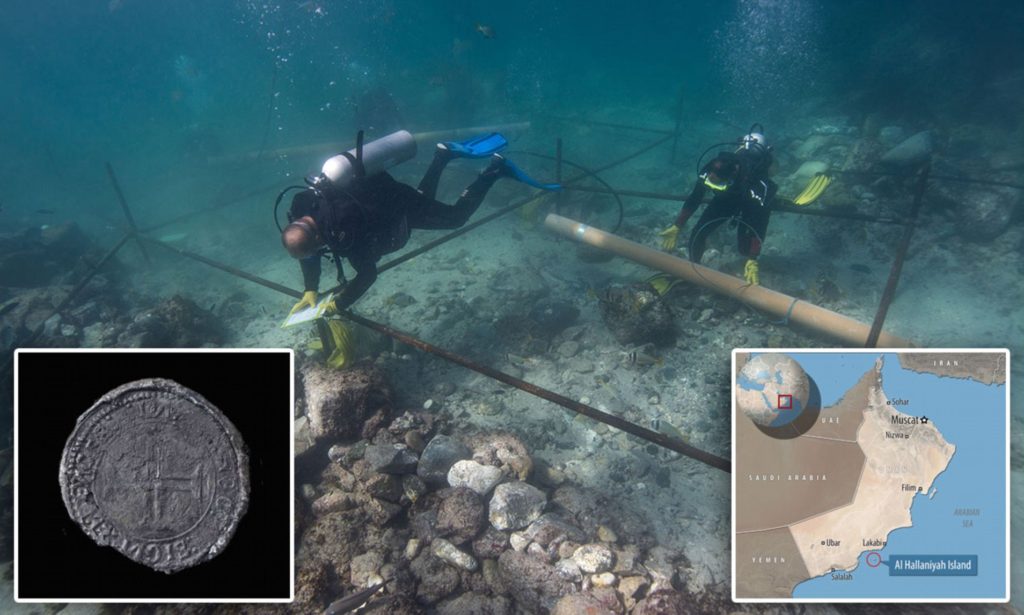
One of Vasco da Gama’s shipwrecks, the Esmeralda from 1503, was actually found off the coast of Oman only a few years ago, still loaded with lots of artifacts from centuries ago!
As kids, we learned a lot about the exploits of Vasco da Gama, Magellan and Dias. Most of us never thought much about them being Portuguese. Even Christopher Columbus, although Italian, lived in Portugal for a while and learned much of his sailing and navigation skills here. Portugal was the hotspot for navigation. But nobody got to command an armada because they were a nice guy.
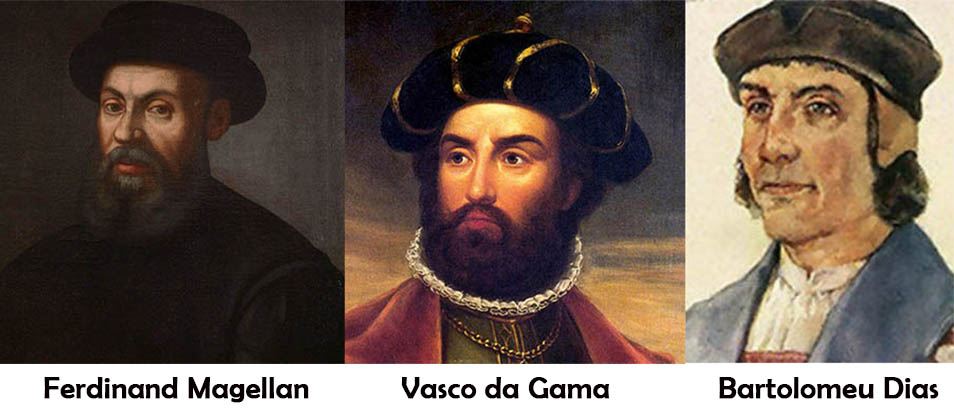
Vasco da Gama, for example, had intercepted a ship of Muslim pilgrims traveling to Mecca, looted it and burned hundreds of innocent people to death, including women and children. Although this was in retaliation to an earlier massacre against Portugal, this act was still considered cruel and excessive even 500 years ago.
Magellan wasn’t considered as cruel as Vasco da Gama, but he was known to have mutineers shot and quartered and their bodies fixed to a stake. So, there was that. I wouldn’t want my daughter marrying any of the captains or crew, but at least they were away from home a lot.
The discoverers and explorers are still highly revered in Portugal, their past cruelty taking a back burner to the contributions gained from discovering other cultures. Without debating all the pros and cons here, statues of the explorers still stand throughout Portugal. There is even a Vasco da Gama soccer team and a Vasco da Gama shopping mall. History is written by the victors.
I hope that I’ve piqued your interest enough to revisit the history of the explorers and draw your own conclusions. There are many books on this segment of history and to say that it is fascinating would be an understatement. Portugal is so rich with history. Historical remnants exist all across this wonderful country no matter where you visit. But let’s get back to present-day Portugal for now.
Expats – The New Explorers?
Calling expats explorers would be unfair to the early explorers. It would also be unfair to us because I would like to think that we are nicer. Regardless, exploration doesn’t require much bravery these days (unless you are blasting off into outer space).
The hardest part of moving to another country is filling out the appropriate paperwork. You can change your mind if you find that the lifestyle doesn’t suit you. You can also go back to your old familiar haunts for visits (granted, 2020 has not made that easy).
Changing residency has become a lot more popular recently. According to International Living, their section entitled “How to Move Out of the U.S.” has received almost ten times the amount of traffic this year from the same time last year. That is a huge increase! And according to official statistics from Portugal’s border agency, requests for Portuguese citizenship are at an all-time high. In a sense, this is our Age of Discovery.
Cost of Living in Portugal
International Living puts the cost of living here in Portugal at between $2,500 to $3000 a month for a couple. That sounds to be about right, although I have seen a couple of heated Facebook debates on that subject (because Facebook brings out the best in people).
Naturally, there are many variables when discussing cost of living. Depending on your rent or mortgage situation, and how often you eat out, it could be a tad higher. But I also know expats who live on less.
The dollar has taken a big hit as of late, which has added another 10% to your cost of living for Americans receiving income from the US. Who knows what the future will bring? Regardless, our standard of living is a bit higher here than it would be in the US.
Gordon Ramsay Exploring Ericeira’s Eateries

Gordon Ramsay visited one of Ericeira’s new eateries, called Avó (meaning Grandma). It is next to the Calavera Mexican Cantina and Tequila Bar, across from Mascalazone Latino Pizza and nestled behind the old, golden domed fountain (for all you locals).
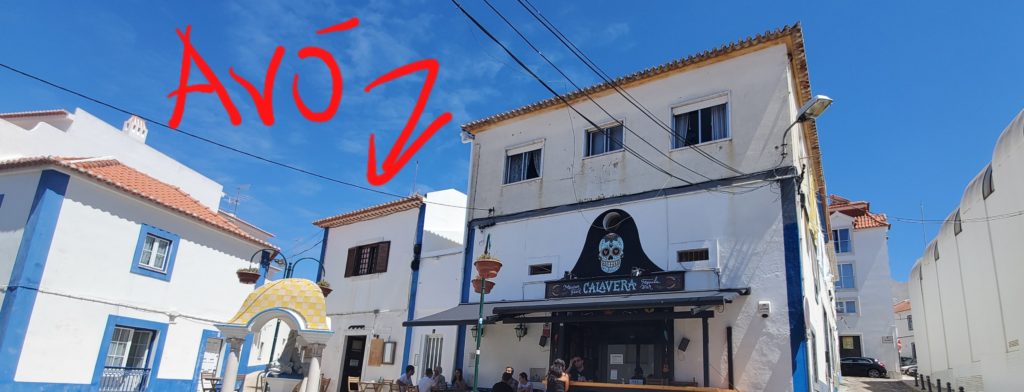
Avó opened only nine months ago and survived the Coronavirus shutdown. Not all restaurants were so fortunate. Avó is not pronounced like avo in avocado. Not many Portuguese words sound the way they look to us, another challenging obstacle to learning the language.
Anyway, there was no camera crew in tow, but after his meal he went back to the kitchen to let them know how much he enjoyed the food. A picture of him was shot of him standing with the chefs. Since then, business has been booming. My wife checked it out with a friend and they both gave glowing reviews. So, I had to check it out on our next Ericeira excursion, and the food did not disappoint.
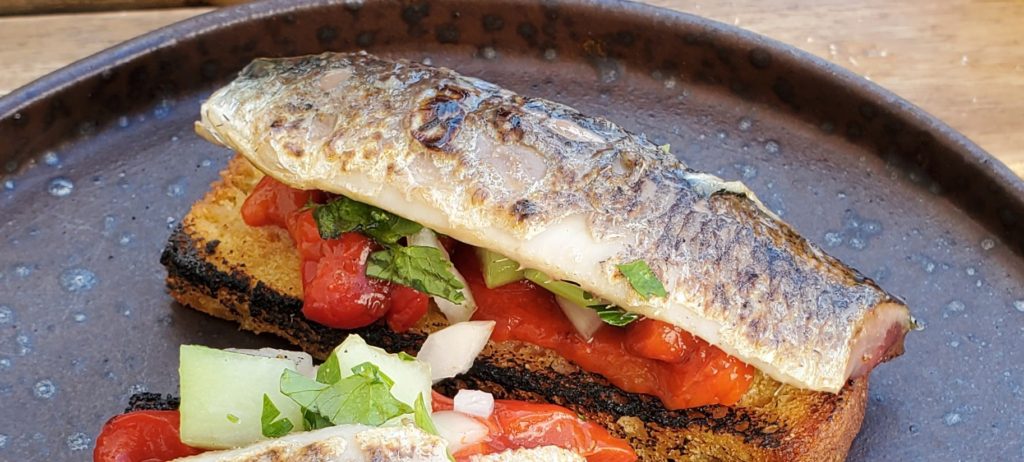
Tapas are big here, which is what we ordered. They are like mini-meals, or snacks, and by ordering tapas you get to taste a wider assortment of foods without feeling like you’ve missed out on anything. One thing I ordered was sardines on crispy cornbread. In between the buttered cornbread and sardines were sautéed bell peppers and onions with delicious, undefinable flavors. Even if you are not a fan of sardines, you would find this amazing.
With coffee, drinks, five tapas between us, and dessert, the bill came to 30 euro for the two of us, including tip. This is a little higher than a typical local lunch, but it did get Gordan Ramsay’s seal of approval. We will definitely be back.
While sitting at Avó in the beautiful seaside town of Ericeira, we experienced one of those perfect August days. Cathy and I were eating good food and drinking fine wine, all within our less-than-extravagant budget. Actually, Cathy was drinking fine wine while I was enjoying my fine beer. The breeze was gently blowing, and the seagulls were talking to each other. Although they are loud talkers, it still sounded like music to my ears. And I was feeling grateful that that we had found this wonderful town.
We have become friends with fellow expats in different cities, towns and villages across Portugal. And they feel the same way about the places they have landed. Fate is funny that way in how it picks the place for you. Each place has its own particular charm and appeal and we love visiting the different locations of our newfound friends.
Portugal is a small country, about the size and population of Pennsylvania. The towns and villages, being unique from each other, require a bit of exploration in order to find your perfect spot.
A Disclaimer and a Bit of Advice about Portugal Expat Life
Okay, this is my disclaimer. If some of my Portugal Expat Life blogs sound a bit like idyllic travel brochures, it’s because I try not to write when I’m in a crappy mood. We all get those from time to time, no matter where we live. But writing while I am in a good mood can give the false impression that moving solves all of life’s challenges. Life is a journey and we are always trying to improve ourselves. A new place offers a fresh perspective on life, but it is still up to each of us to take advantage of that new frame of reference.
Here is my advice, based on what I have learned from my new Portuguese perspective. It is about pace of life. Unless you are prepared to slow your life down, you are probably not ready to move here. Portugal is about taking deep breaths and enjoying each moment.
Sometimes that takes a bit of practice, because we are hardwired from years of preconditioning to treat everything as a DEFCON 1 moment. But I guarantee you, making the effort to decompress is worth it. Explore your mind!
Até mais tarde, jacaré (See you later, alligator). And as always, your comments are welcome!

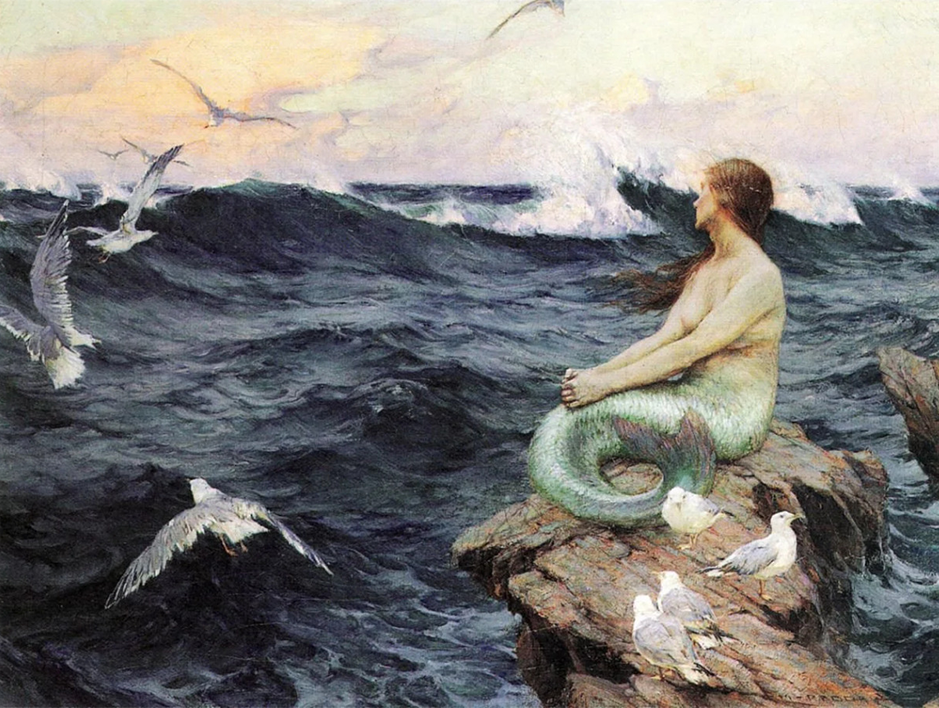
Fun and informative, I always smile when I see your post in my inbox!
Always a good day when I can make someone smile. And you have a lovely smile!
Your statement “It is about pace of life. Unless you are prepared to slow your life down, you are probably not ready to move here.” is exactly the same here in Colombia. The US is all about instant gratification and many other places in the world are take you time, slow your pace and enjoy life.
Yep, I don’t think we are designed to go at top speed every waking minute. It’s not healthy.
Witty, wise, inspirational, and informative perspective about Portugal. What a great read with my morning coffee. Thank you!
Obrigado, Dona! (You’re only allowed one “n” in Portuguese)
Enjoying your perspective and modified look at Portuguese history. Thanks.
Modified.. I’ll take that. 🙂
Another good read Bob in what will surely be an ongoing exploration … nos vemos pronto amigo- (Cj — and still getting lost in Mexico)
Awaiting my visa & travel clearances for Vietnam (Da-Lat / DaNang / Hoi-An / NahTrang) … NOT allowed in TFN (Covid)
Wow, Cory! Sounds like major changes on the horizon. I will be in touch.
I love reading your blog/articles, they are so funny and helpful!
So looking forward to going over there even though it’ll be more than a year after our original plans were postponed due to Covid. Hope we can get together with you and Cathy too! We’re staying in Ericeira for part of the time. 😀
Glad you enjoy them, Janet! We will definitely get together when you finally arrive. Looking forward to it!
“How to Move Out of the US” better be warned of even greater increased activity following the election if you know who wins….I might be requesting info myself! Great blog as usual. You and Cathy have both learned so much Portuguese history. Very impressive, keep up the good work!
P.S. I missed seeing photos of you and Cathy in this edition, just saying!
We find the history so much more relevant and interesting now that we’re here. I promise next time there will be pictures of us. But don’t I look a little bit like Vasco da Gama? I need to get a hat like that. 🙂
If history lessons were this entertaining in high school! I would have passed with flying colors! Thanks for the blog and please keep them coming.
Aww.. thank you, Lynda! If I recall correctly, you were too busy flirting with the boys in high school to concentrate on history. 🙂
Charming!
Bob… I have been meaning to reply to your blog for, oh, I don’t know… the very first one I read! HA! Anyway, they are so worth the read. This last one really spoke to me because I could really see you and Cathy al fresco on a lovely day. I remember so clearly our conversations while sitting around your table, or our table or Karen and Dave’s table that were filled with anticipation of your upcoming move… I just have to say how happy I am that you two are happy! You have embraced this new life, new pace, new culture. We are counting the days until we can join you for dinner and wine… al fresco with a few seagulls for company.
Nita
So nice to wake up and see your name pop up! Yes, we are looking forward to that day as well. If there is a silver lining to the delay in travel plans, it is that we have been introduced to so many new places to share with you. And by the time you come here, Cathy will be able to order in Portuguese. I don’t know how many years it will take me. Fond memories of sitting around the table with the Youngs and Burnhams while planning our move!